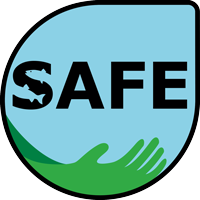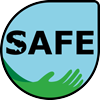
Eurofish in collaboration with the Spanish Ministry of Agriculture, Fisheries, and Food, hosted the international fisheries and aquaculture conference “Ways to a Circular Economy” in Madrid on September 25-26, 2024. Held at the Madrid Marriott Auditorium Hotel & Conference Center, the two-day event focused on exploring the potential of circular economy practices within the fisheries and aquaculture sectors. With 195 participants from 29 countries, the event was a big success and featured participants from across Europe, the Black Sea region, the Caucasus, and Central Asia, representing government institutions, civil society, academia, the private sector, and intergovernmental organizations. Twenty experts from ten countries led discussions on a range of topics, including the decarbonization of the fishing fleet and the management of side- and waste streams.
The conference was opened by the Spanish Secretary General of Fisheries, Isabel Artime, emphasizing the crucial role of energy transition and the circular economy in improving the competitiveness, profitability, and sustainability of the fishing and aquaculture industries. She stressed the importance of technological development, regulatory frameworks, and financing to support this transition while modernizing the fishing fleet to improve efficiency and meet generational challenges.
The first session of the event, titled “Decarbonisation of the Fleet,” featured six presentations on energy efficiency and alternative energy solutions. Andreas Bach from RISE Research Institutes of Sweden discussed energy-saving measures and alternative solutions for fishing vessels, while Nina Marie Thomsen from SINTEF introduced the ZEROKYST project in Norway, exploring the potential of using electricity and hydrogen to power coastal vessels. William Griffin from the FAO addressed the potential and limitations of alternative fuels for the global transformation of transports and the fishing fleet. Bengt Fellbe provided insights on industrial symbiosis and resource optimization, while Alfonso Villares Bermúdez, the Sea Councillor of the Xunta de Galicia in Spain provided the stepping stones for the Spanish plans for decarbonisation of the fishing fleet. Esben Sverdrup-Jensen from the Danish Pelagic Producers Organisation rounded off the session by discussing the challenges and goals of decarbonizing the large-scale Danish and European fishing fleets.
SAFE helped organise the second session about “Side- and Waste Streams within Aquaculture,” and provided several speakers from the SmartAqua4FuturE project. The session started off with a presentation by Javier Ojeda González-Posada from APROMAR, who outlined Spain’s achievements and future goals for circularity in aquaculture. Francesca Barazzetta from Eurofish provided an overview of current and future market opportunities for seafood products derived from side and waste streams. Dr. Bela Urbanyi from the Hungarian University of Agriculture and Life Sciences discussed sustainable and efficient pond aquaculture systems, and Christian Unmack from Eurofish International Organization focused on reducing weight loss and water usage in aquaculture through technology. Richard Newton from Stirling University closed the first day with insights into life-cycle analysis (LCA) of side-streams in aquaculture.
The second day of the conference continued with the session on “Side- and Waste Streams within Aquaculture” where Remigiusz Panicz from West Pomeranian University of Technology in Szczecin, Poland, presented challenges and opportunities in managing water and sludge waste streams in pond aquaculture.
The third session, “Side- and Waste Streams within Fisheries,” was opened by Juan Carlos Martín Fragueiro from OPROMAR in Spain, who presented concrete examples of how Spanish fisheries are using side-streams to create new food sources. Ingrid Undeland from Chalmers University of Technology in Sweden explored new values from pelagic fish side-streams, and Jónas R. Viðarsson from Matis in Iceland shared examples of circular economy innovations. Ixai Salvo Borda from Eurofish discussed non-food industrial applications of fish by-products, while Bruno Iñarra from AZTI presented strategies for water efficiency and the recovery of valuable compounds in the fish processing industry. The morning concluded with a presentation by Gonzalo Reguera Diaz de Terán from Mercamadrid, who discussed advancements in circular economy practices and waste management.
In the afternoon, conference participants visited the Centre of Innovation in Circular Economy (CICE) in Madrid, where they toured the facility and learned about waste treatment projects and other initiatives in local circular economy innovation.
SAFE roll-up posters and flyers in English and Spanish were distributed together with the SAFE business cards.
A short video highlighting SAFE’s participation is available here (https://youtube.com/shorts/9IeyfZdgUFM):





